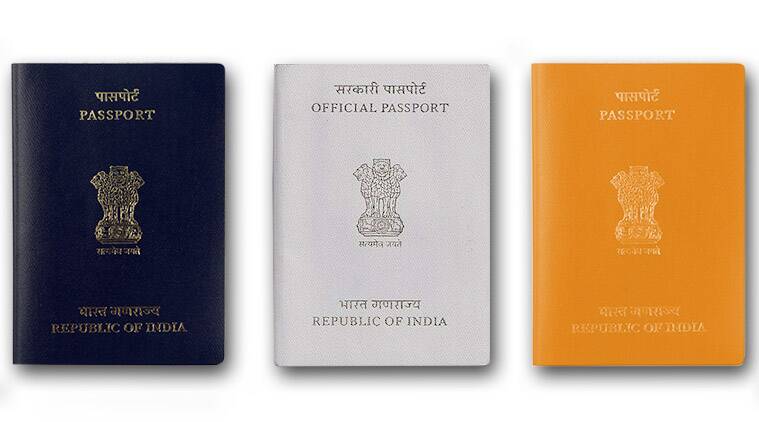Explained | Europe’s ‘Green Passport’ and its impact on India
Explained | Europe’s ‘Green Passport’ and its impact on India
Why is the transfer being opposed by India and the African Union and what does it imply for travellers?
The story up to now: On July 1, the European Union applied the EU Digital COVID Certificates (EUDCC) or the “Inexperienced Passport”, which permits ease of intra-European journey for passengers who’ve taken one in all 4 vaccines ‘recognised’ by the European Medicines Company (EMA) that excludes Indian-made Covishield and Covaxin, amongst others. The transfer led to a pointy protest from India, in addition to the African Union, as issues develop over vaccine passports that discriminate in opposition to travellers from growing international locations with restricted entry to vaccines. Some European international locations have since relented, with a 3rd of the 27-nation EU agreeing to incorporate Covishield within the listing of authorised vaccines.
What does the EUDCC entitle passengers to?
The EUDCC, or the Inexperienced Passport, which is within the type of a digital QR code, attests that an individual has been vaccinated in opposition to COVID-19, and likewise if they’ve had a current unfavorable take a look at and/or are thought of immune having beforehand contracted the sickness. It’s recognised by all 27 EU international locations, in addition to Switzerland, Liechtenstein, Iceland and Norway for passengers inside Europe, who’re certain to not want separate documentation for intra-EU journey.
How will it impression Indian travellers?
The EUDCC will impression Indians notionally at current, as solely important journey is allowed into EU international locations and particular permission needs to be taken for these travelling from India. With world issues over the Delta variant, which was first detected in India, extra restrictions are in place for Indians travelling overseas. The European Union has identified that the EUDCC is barely meant for passengers throughout the EU, and that the majority, if not all, residents would have obtained one of many 4 vaccines which have been cleared by the EMA — Comirnaty (Pfizer/BioNTech), Vaccine Janssen (Johnson & Johnson), Spikevax (Moderna) and Vaxzevria (AstraZeneca Europe). In line with the EU, the Serum Institute of India’s (SII) Covishield was a “biologically” totally different product and it therefore wants to use individually for EMA clearance. Each SII and AstraZeneca have since clarified that they’re within the strategy of searching for clearances. In the meantime, the highway appears tougher for Bharat Biotech’s Covaxin, as in contrast to Covishield, it has not obtained recognition from even the World Well being Group (WHO) and is within the strategy of finishing its utility there.
How did India register its protests?
Throughout his go to to Italy for the G20 ministerial convention final week, Exterior Affairs Minister S. Jaishankar registered a robust protest in his conferences with European counterparts in addition to EU Excessive Consultant Josep Borrell Fontelles, as authorities sources indicated that India was ready to provoke reciprocal harsh quarantine measures in opposition to international locations that discriminated in opposition to Indians.
India’s issues are three-fold. It feels vaccine passports will limit passengers from international locations that don’t have the identical entry to vaccines and can improve vaccine inequality. It additionally argues that the EU ought to recognise Covishield as it’s no totally different from different AstraZeneca-licensed vaccines, and extra broadly that each one Indian-approved vaccines ought to be given recognition worldwide, and that passengers may be licensed by way of the Co-WIN web site.
Moreover, officers level out that Covishield was distributed to 95 international locations, primarily low- and middle-income international locations of the worldwide South, and the EU motion discriminates in opposition to all of them. There’s a trace of racism, they declare, in the truth that all vaccines cleared by the EMA are these which have been taken by residents in Europe and North America, whereas those excluded are these made and distributed far and vast in the remainder of the world by Russia, India and China.
Backing India’s stand, the African Union and Africa Centres for Illness Management and Prevention issued an announcement elevating issues over the Inexperienced Passport, declaring that the Covishield vaccine was the “spine” of the EU-supported worldwide COVAX alliance’s programme in Africa, together with the AstraZeneca-SkBio vaccine produced in South Korea.
What’s the WHO’s stand?
In its interim steering launched on July 2, a day after the EUDCC was launched and applied, the WHO printed its ‘Coverage concerns for implementing a risk-based method to journey within the context of COVID-19’. In it, the WHO held categorically that vaccine passports shouldn’t be made necessary for journey and ought to be optionally available, stating that proof of COVID-19 vaccination shouldn’t be required as a situation of entry and exit from a rustic.
Will the EU relent?
By bringing within the EUDCC, the European Union has made it clear that it intends to make use of these vaccine passports in some measure to distinguish between those that are vaccinated and people who aren’t or have taken ‘unrecognised’ vaccines. Nonetheless, with not less than 9 international locations, together with Austria, Germany, Greece, Iceland, Eire, the Netherlands, Slovenia, Spain and Switzerland, agreeing to independently make exemptions for Covishield, and Estonia accepting each Covishield and Covaxin, there may be hope that sufficient stress will construct on the EMA to incorporate exemptions for Indian vaccines as nicely.
Disclaimer: This publish has been auto-published from an organization feed with none modifications to the textual content material and has not been reviewed by an editor
